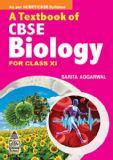Welcome to the Comprehensive Biology course for Class 11, designed to provide a thorough understanding of fundamental biological concepts and principles. This course is aligned with the CBSE curriculum and aims to foster curiosity, critical thinking, and a strong foundation in biology.
Course Objectives:
- To introduce students to the basic principles and concepts of biology.
- To develop an understanding of the diversity of living organisms and their classification.
- To explore the structure and functions of cells, tissues, and organs.
- To explain the principles of genetics and heredity.
- To examine the principles of evolution and the process of natural selection.
- To introduce students to the mechanisms of human physiology.
- To promote an understanding of ecological principles and environmental conservation.
- To foster scientific inquiry and experimental skills through laboratory activities.
Course Outline:
Unit 1: Diversity of Living Organisms
- Introduction to the classification of living organisms
- Five-kingdom classification system
- Morphology, anatomy, and physiology of different organisms
- Biodiversity and conservation
Unit 2: Structural Organization in Plants and Animals
- Plant anatomy and morphology
- Animal tissues and their functions
- Structural organization in animals: Digestive, respiratory, circulatory, and reproductive systems
Unit 3: Cell: Structure and Function
- Cell theory and cell organization
- Structure and functions of cellular organelles
- Cell division: Mitosis and meiosis
Unit 4: Plant Physiology
- Photosynthesis and respiration
- Plant growth and development
- Transport in plants: Water, minerals, and nutrients
Unit 5: Human Physiology
- Digestive system
- Respiratory system
- Circulatory system
- Excretory system
- Nervous system
- Endocrine system
- Reproductive system
Unit 6: Genetics
- Principles of inheritance and variation
- Mendelian genetics
- Molecular basis of inheritance
- DNA replication, transcription, and translation
Unit 7: Biotechnology
- Principles and applications of biotechnology
- Tools and techniques in biotechnology
- Genetic engineering and its ethical considerations
Unit 8: Biology and Human Welfare
- Health and disease
- Strategies for disease prevention and control
- Microbes in human welfare
Unit 9: Biotechnology and Its Applications
- Biotechnology in agriculture and environment
- Biotechnology in healthcare
Unit 10: Ecology and Environment
- Ecosystems and ecological balance
- Biodiversity, conservation, and environmental issues
- Environmental pollution and its control measures
Assessment Methods:
- Regular class assessments (quizzes, assignments, and worksheets)
- Periodic tests and examinations
- Practical laboratory work and experiments
- Project work and presentations
By the end of this course, students will have gained a solid foundation in biology, enabling them to pursue further studies in the field and develop a scientific mindset. Through interactive learning, practical activities, and real-world applications, students will be prepared to excel in their CBSE Class 11 Biology examinations while cultivating a passion for the life sciences.







